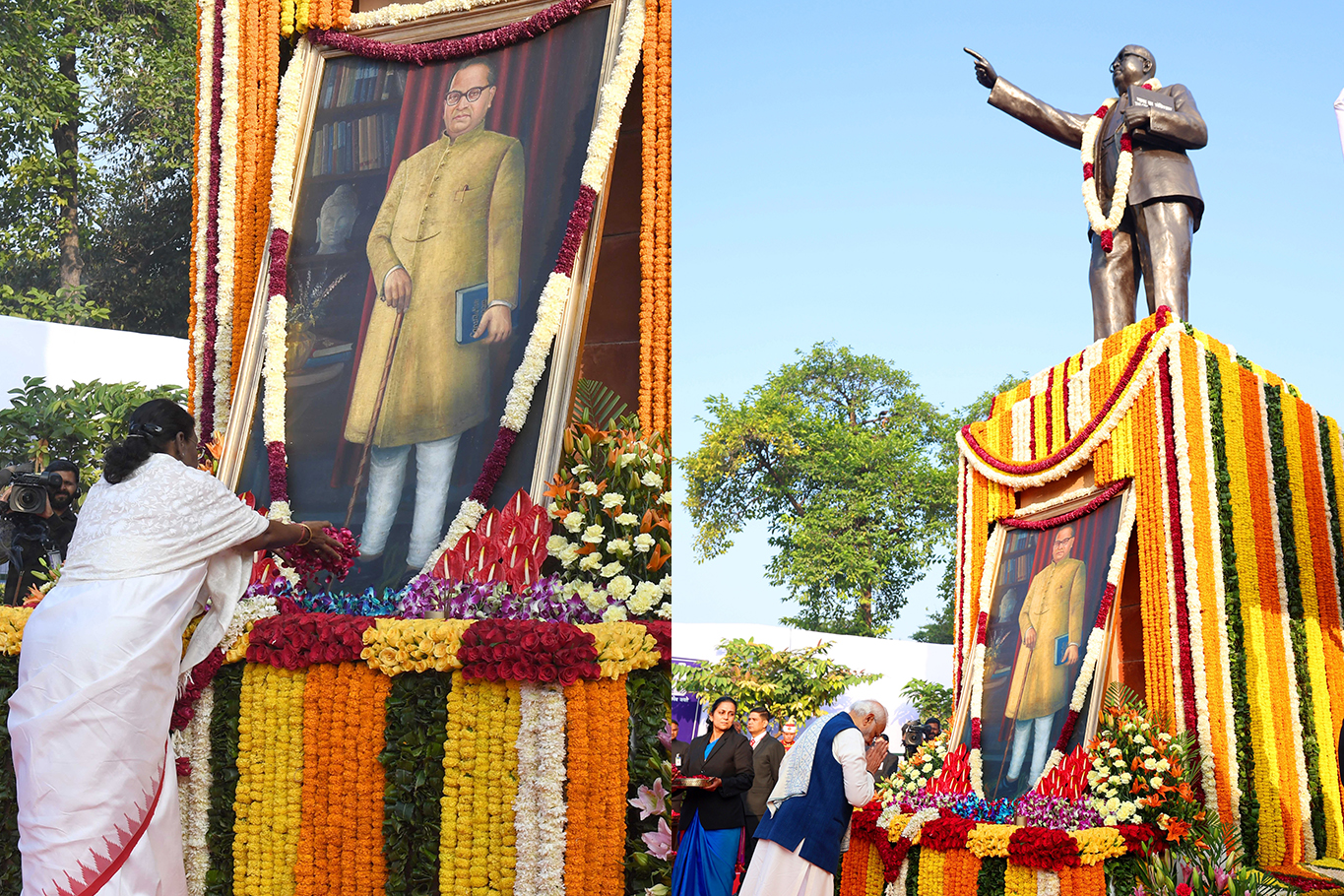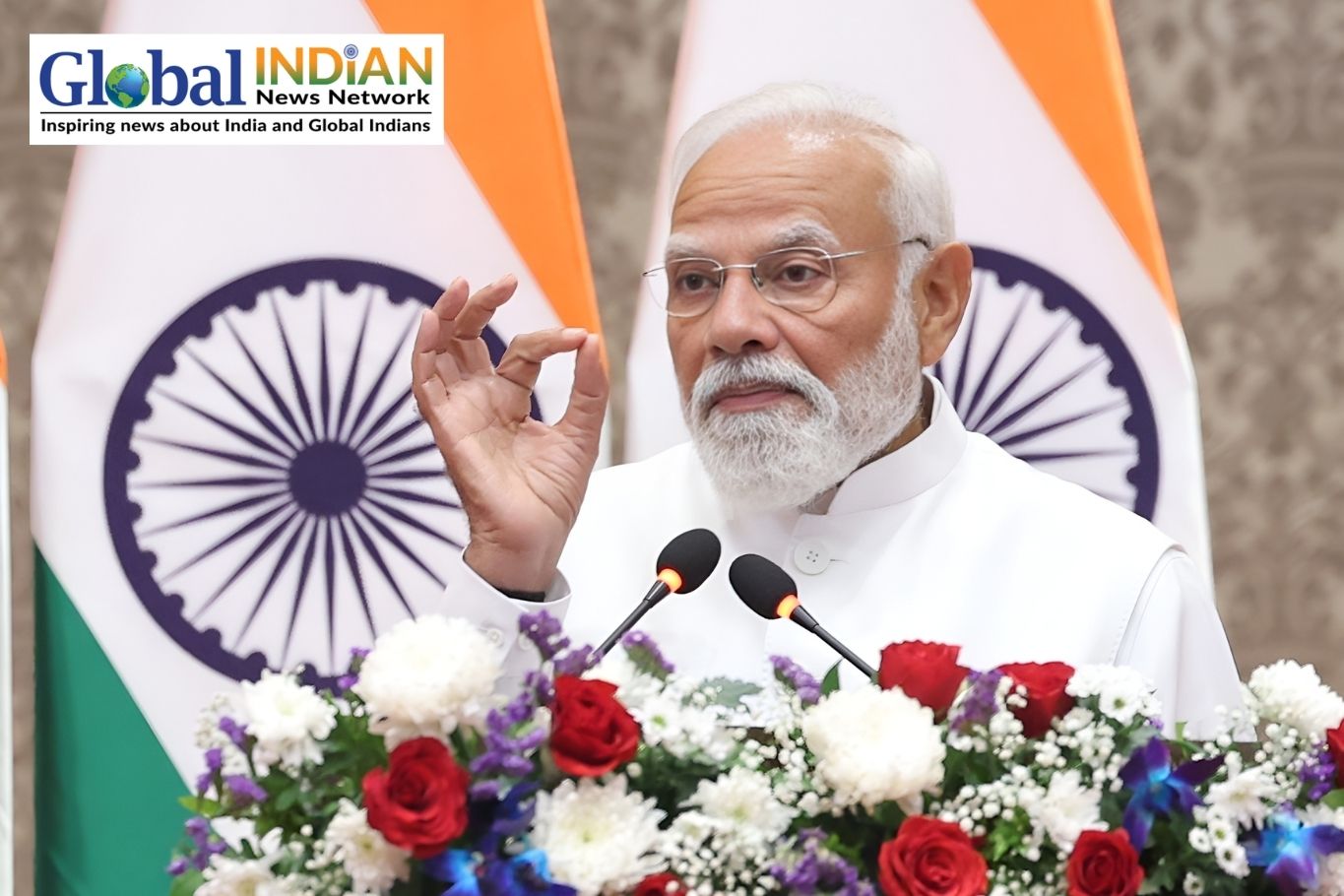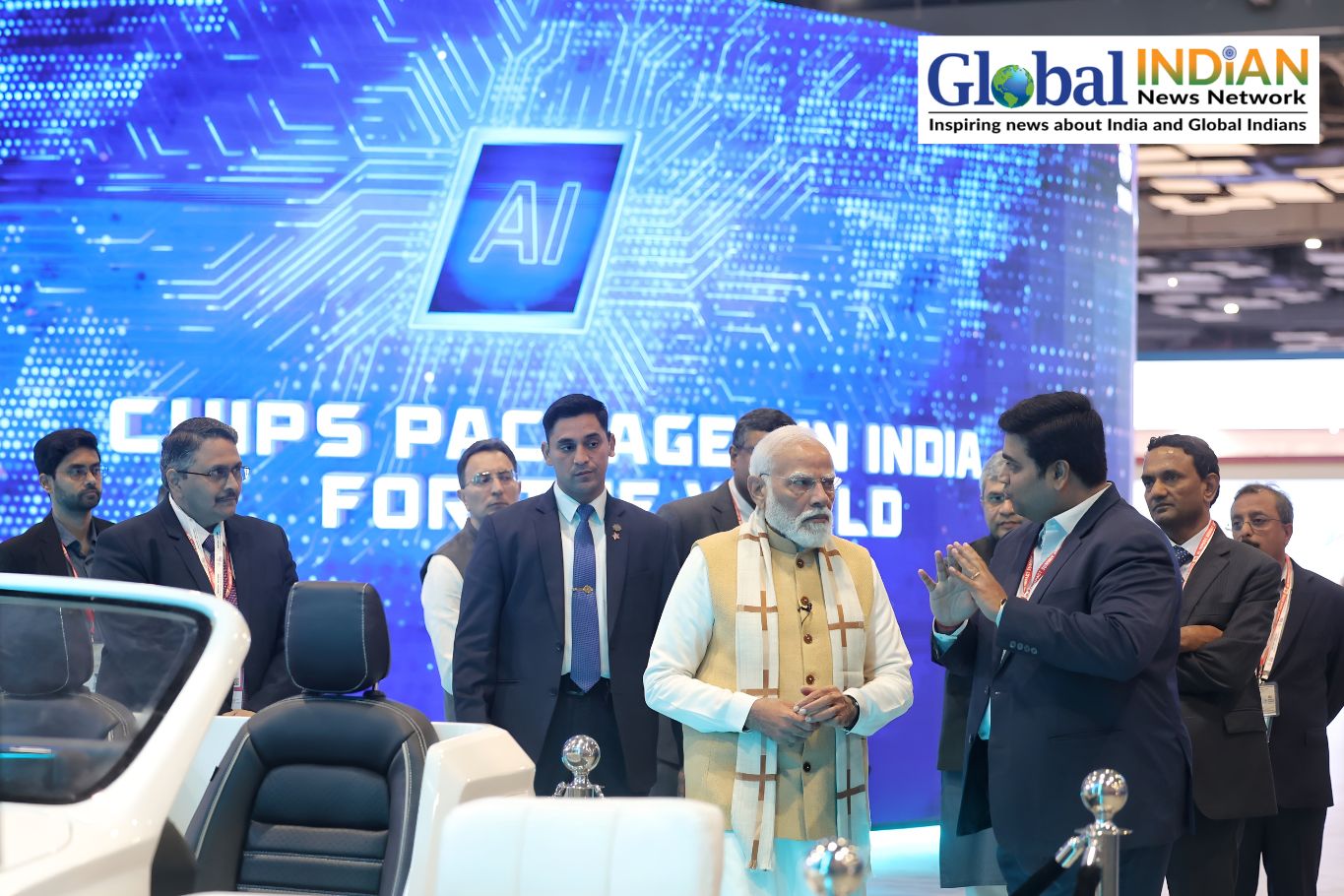 On the 67th death anniversary of Dr. B.R. Ambedkar, President Droupadi Murmu and Prime Minister Narendra Modi paid floral tributes. The day, observed as “Mahaparinirvan Diwas,” saw Vice President Jagdeep Dhankhar, Lok Sabha Speaker Om Birla, and other parliamentarians honoring Ambedkar at his statue in the Parliament premises. PM Modi acknowledged Ambedkar’s role as the architect of the Indian Constitution and his commitment to social harmony and the welfare of the exploited.
On the 67th death anniversary of Dr. B.R. Ambedkar, President Droupadi Murmu and Prime Minister Narendra Modi paid floral tributes. The day, observed as “Mahaparinirvan Diwas,” saw Vice President Jagdeep Dhankhar, Lok Sabha Speaker Om Birla, and other parliamentarians honoring Ambedkar at his statue in the Parliament premises. PM Modi acknowledged Ambedkar’s role as the architect of the Indian Constitution and his commitment to social harmony and the welfare of the exploited.
In a social media post, PM Modi referred to Ambedkar as an “immortal champion of social harmony” and paid his respects on this significant day. Lok Sabha Speaker Om Birla also recognized Ambedkar’s dedication to establishing an equal and just society, progressing the nation, and advocating for human rights and social justice.
Defence Minister Rajnath Singh paid homage to Ambedkar, acknowledging his remarkable contributions to the nation and highlighting the enduring impact of his thoughts. Dr. Jitendra Singh, Minister of State in the Prime Minister’s Office, remembered Babasaheb’s role as the chief architect of India’s Constitution and his tireless efforts for an equitable and strong India.
Congress President Mallikarjun Kharge paid tributes to Ambedkar’s commitment to democratic principles, liberty, equality, fraternity, and justice. He emphasized the need to preserve and protect Ambedkar’s finest contribution to the nation – the Constitution of India.
B.R. Ambedkar, born on April 14, 1891, was a multifaceted figure – an Indian jurist, economist, politician, and social reformer. He fought against social discrimination towards Dalits and advocated for the rights of women and workers. Ambedkar passed away on December 6, 1956, leaving an indelible mark on Indian history.
His contribution extended beyond social reform; Ambedkar earned doctorates in economics from Columbia University and the University of London. He played a crucial role in drafting the Indian Constitution after independence and led significant movements for the rights of marginalized communities.
The Poona Pact in 1932, a significant agreement between Ambedkar and Madan Mohan Malaviya, led to increased legislative representation for the depressed class. Ambedkar received India’s top civilian honor, the Bharat Ratna, posthumously in 1990.
His legacy endures in India’s constitutional framework and his relentless efforts for social justice, shaping the nation’s course towards equality and inclusion. Babasaheb Ambedkar’s teachings and vision continue to influence discussions on human rights, social equality, and the path to a just society.









